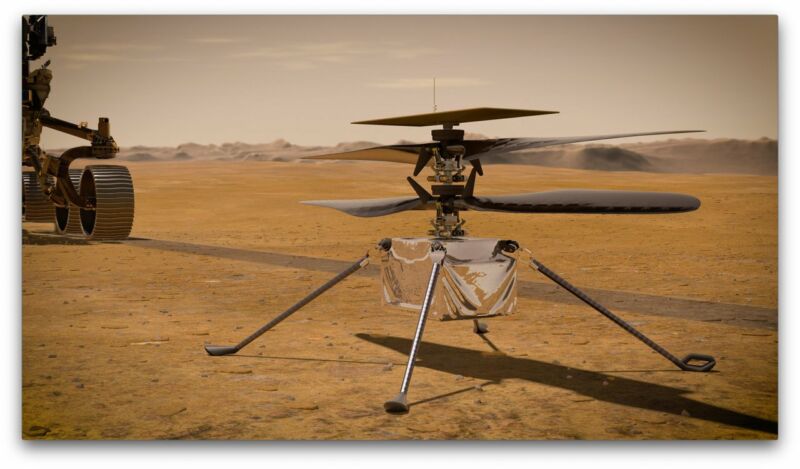NASA lays out plans for its first flights on Mars

Enlarge (credit: NASA/JPL-Caltech)
On Tuesday, the Jet Propulsion Laboratory (JPL) hosted a press conference where it detailed the plans for the Ingenuity drone that hitched a ride to Mars attached to the underside of the Perseverance rover. The scientists and engineers behind the drone announced that they've now picked a site for what is expected to be the first powered flight on another planet. With the site settled, they're now targeting April 8 for the flight, which will be the first in a monthlong series of test flights to validate the technology.
WhatIngenuity, pictured above, looks familiar to anyone who's seen any of the profusion of small consumer drones that have developed over the last decade or so. But, as Ingenuity's chief engineer Bob Balaram put it, "It's the first aircraft designed for powered flight on another planet," and that makes for some substantial differences with Earth-bound drones. For starters, the hardware is much bigger than it might seem from the photos, as each of its two counter-rotating blades is 1.2 meters (four feet) long. Ingenuity also weighs in at 1.8 kilograms (four pounds) on Earth, although it's less than half of that weight on the red planet.
Balaram also said that "In effect, this is an aircraft that also happens to be a spacecraft," noting it had to survive the stresses of launch and landing, as well as the temperature extremes of its flight to Mars and time on the surface. That has necessitated a heating element in Ingenuity's fuselage, which keeps things like the batteries and electronics operational overnight. Once released on the planet's surface by Perseverance, Ingenuity will be responsible for providing its own power, which it obtains via a solar panel perched above the blades.
Read 14 remaining paragraphs | Comments